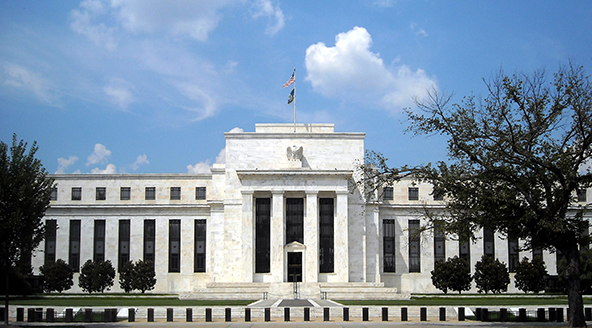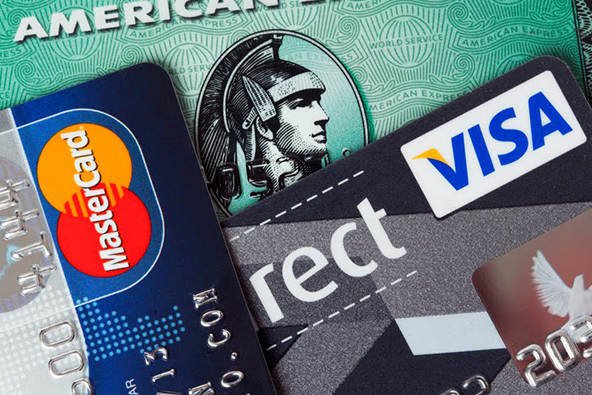Retailers Sue Federal Reserve for not Doing Enough for Them

I didn’t see that one coming, although I guess I should have. Several retail groups have filed a lawsuit, claiming that the Federal Reserve has not complied with key requirements of the Durbin Amendment to the Dodd-Frank financial legislation that was passed in 2010.
Now, a lot has been written on this blog about the Durbin Amendment and regular readers know where we stand on the subject. We believe that the legislation amounts to a government-mandated redistribution of revenues ($7 billion or so annually) from one industry to another. Moreover, as we and others predicted when the amendment was first proposed, it has led to an increase in banking costs for consumers, as issuers ramped up fees to make up for lost interchange revenues.
So far, so straightforward, but now the clear winners of the interchange war are suing the Fed for not doing enough for them. I think that warrants a re-examination of the situation.
What Did the Durbin Amendment Do?
Famously, the Durbin Amendment charged the Fed with, among other things, ensuring that debit interchange fees — the fees issuers collect each time a merchant accepts one of their cards for payment — are “reasonable” and “proportional” to the banks’ processing costs. Though that mandate may seem to be somewhat lacking in clarity, there was never any doubt about how the Fed was expected to interpret it. The retail and bank lobbies did their best to help the Fed in its task and eventually Ben Bernanke’s outfit decided to place a limit on debit interchange fees that averages $0.24 per transaction, 45 percent lower than the pre-Durbin average of $0.44 per transaction.
At the time many of us thought that the Fed’s decision, while disliked by both sides, was a compromise they would each learn to live with. Well, the banks, for one, did move on and promptly began implementing strategies they had already devised for recouping their interchange losses. Some of these failed rather spectacularly, while others flew under the radar and yet others are still to come. However, the retailers, it now turns out, have never quite got over their displeasure and are now suing the Fed for placing the cap too high for their liking.
The Retailers’ Complaint
Initially the Fed proposed a debit interchange cap of $0.12 per transaction that was later lifted to its current level. It is likely, though we can’t be certain, that the retailers would have accepted the lower limit (and the extra billions of dollars in revenues that would have come with it), if it had stayed. By doubling it, however, the Fed had revealed whose interests it serves, their lobbyists now say. Here is Mallory Duncan, Senior Vice President?áof the National Retail Federation (NRF), one of the claimants in the suit:
The Federal Reserve was required by law to come up with swipe fees [interchange fees] that were ‘reasonable’ and ‘proportional’ but what we got were neither. Instead, the Fed allowed themselves to be influenced by the very banks they are supposed to regulate and raised the originally proposed cap to include expenses the law said were not allowed. In doing so, they literally gave away half the savings that could have been seen by merchants and their customers. We want them to go back and follow the law this time.
Never mind that Duncan repeats the completely unsubstantiated claim that retailers would pass the interchange windfall to their customers, here is the interesting part:
Rather than following the law, it’s almost as if the banks and the Fed were working hand-in-glove to block the genuine competition and common-sense price reductions Congress directed. The Fed’s regulations have blunted the competition that would have made greater savings possible.
In other words, by slashing their interchange revenues by 45 percent, the Fed had revealed itself as an accomplice to the evil banks in preventing the retailers from saving even more money for their customers. Right.
The Takeaway
I don’t quite know what to make of this story. It all seems so ludicrous to me that the only way I can make some kind of sense of it is to view it as the first salvo in the retailers’ campaign for a far bigger prize — a limit on the credit card interchange fees.
Now, considering that as a result of the debit interchange cap, our banking has become more expensive, while we are yet to see the promised reduction in retail prices, I would expect that our legislators would not repeat their mistake. But then, these side effects have always been so obvious that I didn’t expect them to make it in the first place.
Image credit: Wikimedia Commons.



The interchange fees have been obscene for years. The banks are, unfortunately, a ten-headed hydra. They raised lots of other fees, making them obscene, so we have to let the guillotine fall on those fees, too. they need to come down to reality–6-7% profit is just fine, and usury is bad for the social collective. The salaries and bonuses the bank executives pay themselves are obscene. No one is worth that kind of money. They are each replaceable.
We need to prevent them from taking ALL our money, our wealth, our houses, and now, with the budget crunches, our schools, our highways, our airports, our water, our electricity, our parks and so on.
They’re price-fixing? Let them go to jail and eat bread and water. They’re charging loan-shark rates? Throw them into prison.
I, for my part, have moved to a credit union. I don’t use my debit or credit card for any purchase if I can help it. I’d rather give it to the retailer. With his/her costs lowered, they don’t need to raise their prices so fast.
Unfortunately, it looks like we’re going to have to regulate every single aspect of the banking industry. Maybe they’ll force us, in the end, to nationalize them if they can’t get a handle on executive greed.